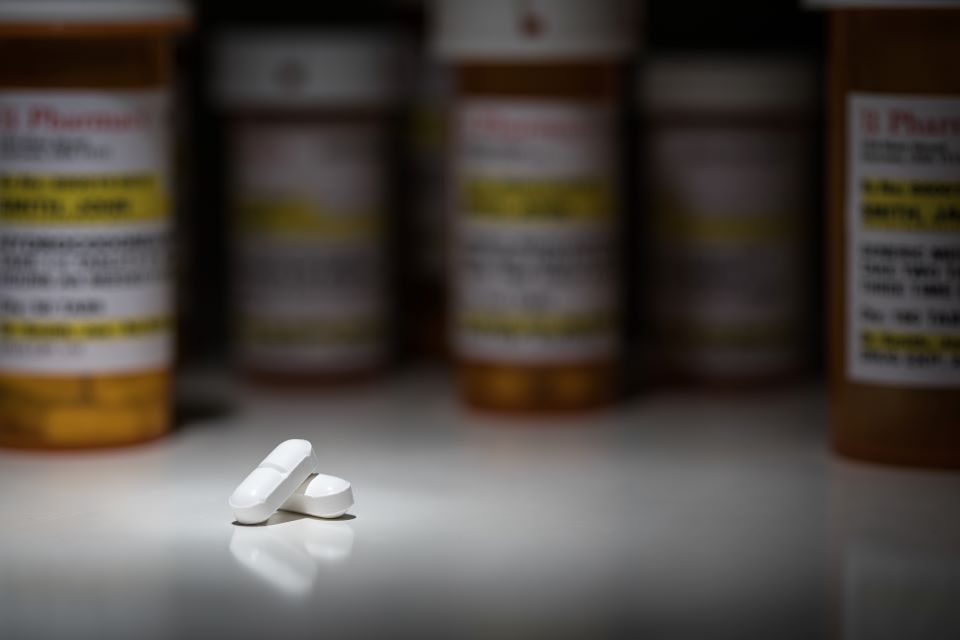What To Do If Your Child Is Using Drugs

Discovering that your child is abusing drugs can feel like a nightmare for any parent. The immediate response is to ask, “what went wrong?” There are cycles of blame that a parent will pass through, such as blaming the child, their friends, loved ones and even themselves. At this point, it can be easy for a parent to lose themselves in guilt and self-blame, or to lash out at the child in a desperate attempt to make them stop. Actions like this are certain to make the situation worse however, and in the end will not lead the child to the help they need.
When a child develops an addiction, the question that matters most in the beginning is not how the addiction developed, but rather what can be done to aid them in overcoming it. There will be time to uncover the root causes later, but at the start, a parent should focus on confronting their child in an open and supportive manner, so they can work together to find a treatment option.
Addiction can easily destroy a person’s life at any age. When it takes hold over a child or a teen, it can quickly cause damage to their developing brain, leaving them with permanent damage if it is not treated early. If your child has begun abusing a dangerous substance, it is crucial to know what you can and should do to best help them.
Why Do Children Abuse Drugs?
Knowing why children use drugs can help a parent identify if their child is at a greater risk for developing a substance use disorder. This is valuable for raising their awareness and leaving them more alert for any unexpected changes in their child’s behavior or health. This can be the difference between spotting it early before it becomes a serious problem.
The classic reasoning for why children, especially teens, decide to abuse dangerous substances is peer pressure. In these situations, the teen is pressured to try a drug because their friends or people they admire are doing it, and in turn they end up addicted. While there are certainly cases where this does happen, it is not the only reason for why teens begin using drugs. Instead, the same social expectations that operate through peer pressure can come from other directions, including from family members with good intentions. For example, if family members pressure a child to achieve perfect grades in school, the child may end up turning toward “smart drugs” like Adderall in an attempt to help them study better and in turn score higher.
Other reasons children turn toward drugs are based in genetics, environment and mental health conditions. If the child already has a mental health disorder like depression, they are more likely to develop a substance use disorder as well. This usually happens because they begin using a drug to escape their negative symptoms, often taking drugs to experience the pleasurable high that accompanies many different substances. Similarly, a child struggling with sadness or social anxiety might also turn toward drugs as a coping mechanism to help them function, but since they are not well-educated on the drug and addiction itself, their self-medicating quickly grows out of control.
What to Do If Your Child is Using Drugs
The most valuable action that a parent can take when their child is abusing drugs is to sit down and have an honest conversation with them. Good discussion is the key to recovery. This may seem like an intimidating concept, especially if the parent and child have experienced a lot of conflict with each other, but it is a crucial first step toward getting them help.
If you are planning to have a conversion about drug abuse with your child, there are a few points that you should keep in mind in order to make it as effective as possible. These are to:
- Pick the right time to talk – The conversation should happen at a time where you are both calm and the child is not under the influence of their drug of choice.
- Limit distractions – If the child is on their phone during the entire conversation, the discussion will not resonate well with them. When having the talk, it is important to choose a calm area with few distractions.
- Develop a plan – Many parents find it useful to practice what they will say beforehand. By doing so, they can keep the conversation focused and provide plenty of details as evidence for their child.
- Research their options – When urging a child to seek help, it may be useful to know what recovery programs are available that can fit their needs. Knowing this before the conversation allows you to show the child with concrete proof that it is not too late to get help.
- Manage expectations – The child may not immediately acknowledge their drug abuse and agree to treatment, and they may even turn confrontational when the subject is brought up. For many people this is a part of the process, but the conversation is still important. It gives the child new information to think about, while also showing them that they are not alone in their struggle
When a child battles with addiction, it is a difficult experience for both the child and their parents. In this situation, you need to make sure that you are not trying to solve the entire problem by yourself, and instead have a support network of your own to lean on. This network can be composed of anyone, from friends and family members, to addiction specialists and support groups of other parents that have been in the same position. Having this support is crucial because it will help keep you in the best condition to help your child.
The most important factor when choosing individuals for support is that they have the best interests of you and your child in mind, rather than hoping for some sort of personal gain, such as a favor in the future.
Avoid Enabling Your Child
There are many situations where parents make their child’s drug abuse a greater problem by practicing what is called enabling. This is usually an unintentional harm, and it consists of actions where the parents carry out an action while trying to help their child that instead encourages them to continue their drug abuse. Common practices that are considered enabling include:
- Making excuses for the child
- Blaming other people for the child’s behavior
- Believing the child’s lies or poor excuses
- Ignoring the child’s drug use
- Bailing the child out of trouble and/or consequences
All of these actions enable drug abuse because they prevent the child from having to face their own mistakes and flaws, in turn allowing them to continue using without experiencing any new inner or external conflict. Inexperienced parents are prone to make these mistakes because their natural instinct is to do what they can to help the child, and on the surface these actions seem to do that. However, while the parents are acting out of care and love, enabling causes more harm than good in the long run.
If a parent really wants to help their child, the best course of action is to set and enforce realistic boundaries and expectations. This is to allow the natural consequences of drug abuse to take effect, such as financial struggles, legal issues and relationship problems. While this can be heartbreaking for a parent to watch, it is the quickest way to help the child realize the damage they are causing and find the motivation to change.
In addition to setting boundaries, parents can also use positive reinforcement to help their child. This is done by rewarding the child when they substitute one of their negative habits (like binging at a party) with a positive one (such as attending a drug-free event). The point of a reward is to reinforce these actions so the child will be more willing to do them again, and the best reward for most situations is simply to praise the child for their healthy choice.
What Type of Treatment Should You Look For?
There are plenty of different treatment options available for drug abuse, all intended for certain types of patients and stages of abuse. As a result, it is important to research which options are in your area and which would be a fit for your child based on their needs. For example, if your child is misusing a substance but has not yet developed an addiction, they may be able to undergo outpatient treatment, allowing them to stay in school and come home each night.
However, if they have been diagnosed with a substance use disorder, they will need to stay at a rehab center for inpatient care to undergo detoxification in a safe manner. This is essential as withdrawal symptoms can pose adverse side effects if not treated properly by medical professionals. Being onsite at a rehab center also means 24-hour access to recovery support, as well as fewer distractions or negative influences that might otherwise impede their progress.
Get Help For Your Child Today
If you suspect yourself or a loved one of an addiction, do not wait to seek professional help. The trusted staff at Brookdale Addiction Recovery is here to help, and the sooner an addiction is addressed, the easier it is to treat. No matter how far an addiction has progressed or the age of a patient, a life…recovered is always within reach.
Please contact our Admissions Specialists today at (855) 575-1292 to begin the treatment process and start your new, vibrant life of recovery.

